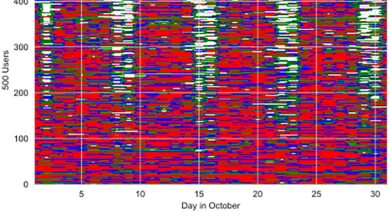Older adults eating four daily servings of ultra-processed food face 10% higher depression risk
Older Australians who consume a diet high in ultra-processed foods may be at a higher risk of depression, according to a recent study published in BMC Medicine. The research, conducted on Australians aged 70 and older, revealed that those who consumed at least four servings of ultra-processed food daily had a 10% increased risk of depression.
Ph.D. candidate Belayneh Mengist Miteku from Deakin University’s Institute for Mental and Physical Health and Clinical Translation emphasized the importance of incorporating freshly prepared whole foods into the diets of older individuals. Miteku highlighted the potential negative impact of relying on pre-prepared and frozen meals, which often contain high levels of ultra-processed ingredients that can be detrimental to mental health.
Ultra-processed foods encompass a wide range of products beyond just junk food, including processed meats, sugary snacks, packaged bread, and flavored beverages. The study, which involved over 11,000 older adults, underscored the need for dietary changes and policy improvements to reduce the prevalence of ultra-processed foods in the Australian diet.
Associate Professor Mohammadreza Mohebbi, also from Deakin University, emphasized the connection between diet and mental health, suggesting that reducing ultra-processed food intake could lead to better overall well-being in older populations. The findings from this study provide valuable insights for healthcare professionals working with aging individuals, highlighting the importance of dietary recommendations in mental health care.
Moving forward, this research could contribute to the development of targeted interventions and guidelines aimed at promoting healthy aging and reducing the risk of depression in older adults. By prioritizing whole, minimally processed foods and limiting the consumption of ultra-processed products, older individuals can potentially improve their mental health and quality of life.
For more information, the full study titled “The risk associated with ultra-processed food intake on depressive symptoms and mental health in older adults: a target trial emulation” can be found in BMC Medicine. This research serves as a crucial step towards understanding the impact of diet on mental health in older populations and underscores the importance of healthy eating habits for overall well-being.





